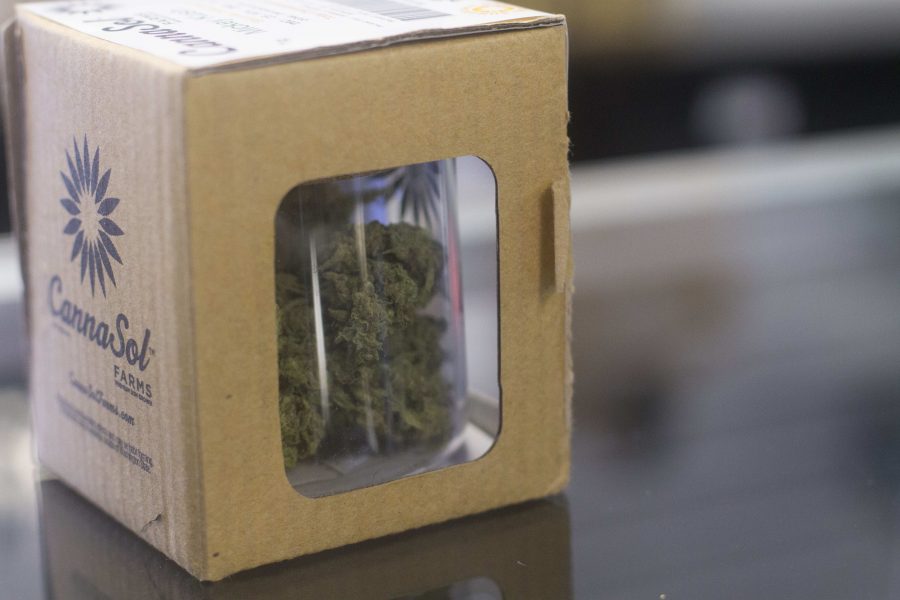No trail to Oregon: Senate passes information bill
Oregon is the fourth state to enact a law to prevent weed dispensaries from storing the personal information of customers.
April 12, 2017
Oregon Senate Bill 863, a bill concerning policies of identification record keeping in marijuana dispensaries, has reached the Oregon State House and has been passed. Oregon will follow Washington, Alaska and Colorado, who already have similar laws in place.
Although not yet passed due to suspension and carry over in the House, pot enthusiasts can breathe a collective sigh of relief when the bill passes (as expected). The proposed bill will ban all Oregon dispensaries from keeping record of customer’s identification in any form including pass ports, drivers license and military identification. The bill will also require the destruction of any pre-existing records within 30 days of signing.
Derek Travis, an employee at the Cannabis Central dispensary in Ellensburg and CWU alumnus, believes customers are hesitant to purchase product for fear that the current administration may repeal legal pot sales. Keeping record of customers would be “like retroactively trapping people,” Travis said.
Martin Vannet, an employee at The Fire House dispensary in Ellensburg, also supports the bill. He questioned the purpose of keeping identification records.
“People that are potheads aren’t violent people,” Vannet said. He suggested that pot enthusiasts are unlikely to commit violent crimes; therefore, law enforcement should have no reason to access records.
Interestingly, Vannet does condone the record keeping of those purchasing synthetic marijuana products, alluding to the unpredictable nature of the effects.
These synthetic products are unregulated and producers find loopholes in laws to continue selling them. The products simulate the effects of pot, but can also cause violent behavior and possible suicidal thoughts, according to the National Institute on Drug Abuse.
Vannet expressed the customer’s desire for confidentiality. He compared this confidentiality agreement to that of a doctor-patient relationship, especially for those customers using for medicinal purposes. He also compared purchasing pot to alcohol, questioning why the same standards and laws do not apply to marijuana.
That desired confidentiality is already written law in some form in Washington, Alaska and Colorado. The industry is booming in Washington as the state earned nearly $70 million in tax revenue in its first year of legal pot sales, according to Business Insider. Martin believes that business in Oregon may be effected by the lack of confidentiality suggesting that street vendors can offer it and therefore appeal to worrisome customers.
Considering the proposed changes in the Oregon marijuana sales policy, Vannet stated changes he would like to see in Washington’s policies. He expressed interest in changing laws on where one can use pot, referring to smoking bars in Vancouver, BC. In 2016, Colorado passed laws allowing adults to use pot as long as it is smokeless and approved by neighbors, according to the Associated Press.
Travis expressed interest in public smoking spots saying it would be “cool to come hangout and smoke with friends.” Travis also believes smoke lounges would “strengthen the community feeling” associated with the product and possibly ease the discomfort of hesitant consumers.



